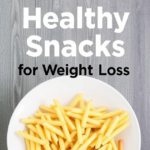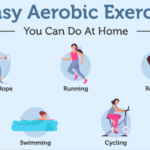Do you often find yourself reaching for a bag of chips, a bowl of ice cream, or a slice of pizza late at night? If so, you may be wondering how this habit affects your weight and health. Snacking at night is a common behavior that many people struggle with, especially after a long and stressful day. However, eating too much or too often at night can have negative consequences for your body and mind. In this blog post, we will explore some of the reasons why you may snack at night, how it can affect your weight and health, and what you can do to stop it.
Why do you snack at night?
There are many possible reasons why you may crave a snack at night, some of which may not be so obvious. Here are some of the most common causes of late-night snacking:
- You’re skipping meals. You may think that skipping meals is the best way to cut calories and lose weight, but this practice isn’t healthy and can actually increase the urge to snack at night. When your body isn’t getting the calories it needs throughout the day, you’re more likely to feel hungrier at night. Studies show that skipping meals like breakfast increases the risk of nighttime snacking and intensifies cravings for carb-rich foods1. That’s why it’s important to eat regular meals throughout the day, even if you’re trying to lose weight.
- It’s become a habit. The more frequently you perform a behavior, like eating ice cream while watching TV at night, the more likely it is to become a habit. If you snack in front of the TV every night or immediately grab ice cream from the freezer after you’ve washed the dinner dishes, these nighttime patterns may be triggering your snacking and reinforcing unhealthy habits. Habits can be hard to break, but simply changing up your nighttime routine — like taking a walk instead of watching TV or stretching for 10 minutes after you’ve finished the dishes — can help.
- Stress and anxiety. After a stressful day, you may find yourself craving sugary, salty, or high-fat snacks at night. Stress can interfere with self-control, spike hormones that make you feel hungry, and increase your cravings for comforting foods, like sweets. This combination can lead to nighttime snacking. Although stress doesn’t impact everyone’s appetite in the same way, if you find that you snack more at night when you’re feeling stressed or anxious, using stress-reduction techniques like meditation and yoga, or getting help from a medical professional like a therapist may help.
- Inadequate sleep. Not getting enough sleep can lead to overeating, especially at night. Studies show that people who don’t meet sleep recommendations tend to snack more in general, including at night. Lack of sleep can also affect your metabolism, hormones, appetite regulation, and food choices. Getting enough quality sleep is essential for your weight and health, so try to aim for at least seven hours of sleep per night.
How does snacking at night affect your weight and health?
Snacking at night can have various effects on your weight and health, depending on how much, how often, and what you eat. Here are some of the possible consequences of late-night snacking:
- Weight gain. Eating more calories than your body needs can cause you to gain weight over time. Snacking at night can contribute to excess calorie intake, especially if you choose high-calorie foods like chips, cookies, candy, or pizza. Studies show that people who eat more calories later in the day tend to have higher body mass index (BMI) and body fat than those who eat more calories earlier in the day. Eating late at night can also disrupt your circadian rhythm, which is your body’s natural clock that regulates your sleep-wake cycle and metabolism. This can affect how your body processes and stores calories and fat.
- Poor digestion. Eating too much or too close to bedtime can interfere with your digestion and cause discomfort. When you eat late at night, your stomach has less time to empty before you lie down. This can cause acid reflux, heartburn, bloating, gas, or nausea. These symptoms can also affect your sleep quality and make you feel tired and sluggish the next day.
- Increased risk of chronic diseases. Snacking at night can also affect your blood sugar levels, cholesterol levels, blood pressure levels, and inflammation levels. These factors can increase your risk of developing chronic diseases like type 2 diabetes, heart disease, stroke, and some cancers. Eating late at night can also impair your immune system and make you more susceptible to infections.
What can you do to stop snacking at night?
If you want to stop snacking at night, you need to address the underlying causes of your behavior and make some changes to your lifestyle and habits. Here are some tips to help you curb your nighttime snacking:
- Eat balanced meals throughout the day. Eating regular meals that contain a combination of protein, fiber, healthy fats, and complex carbohydrates can help you feel full and satisfied for longer and prevent hunger and cravings at night. Aim to eat breakfast within an hour of waking up, lunch around midday, and dinner at least three hours before bedtime. Avoid skipping meals or going too long without eating, as this can make you overeat later.
- Plan your snacks. If you know that you tend to get hungry at night, plan ahead and have some healthy snacks on hand. Choose snacks that are low in calories, sugar, and salt, but high in protein, fiber, and nutrients. Some examples are fresh fruits, raw vegetables, nuts, seeds, yogurt, cheese, hummus, or popcorn. Portion out your snacks in advance and limit yourself to one or two servings per night. Avoid keeping tempting foods like chips, cookies, or ice cream in your house or within easy reach.
- Drink plenty of water. Sometimes thirst can be mistaken for hunger, so make sure you stay hydrated throughout the day and night. Drinking water can help you feel full and reduce your appetite. You can also drink herbal teas, low-fat milk, or sugar-free beverages to quench your thirst. Avoid drinking alcohol, caffeine, or sugary drinks at night, as these can affect your sleep quality and increase your hunger and cravings.
- Brush your teeth. Brushing your teeth after dinner can signal to your brain that you’re done eating for the day and discourage you from snacking later. It can also make food taste less appealing and reduce your desire to eat. You can also chew sugar-free gum or rinse your mouth with mouthwash to freshen your breath and curb your appetite.
- Distract yourself. If you snack at night out of boredom or habit, find something else to do that doesn’t involve food. You can read a book, listen to music, play a game, do a puzzle, meditate, journal, or call a friend. Engaging in a relaxing activity can also help you wind down and prepare for sleep.
- Get enough sleep. Getting enough sleep can help you regulate your hunger hormones, metabolism, mood, and energy levels. It can also reduce your stress and cravings for unhealthy foods. Try to go to bed and wake up at the same time every day and create a comfortable and dark sleeping environment. Avoid using electronic devices like phones, computers, or TVs at least an hour before bedtime, as they can emit blue light that can keep you awake.
Conclusion
Snacking at night is a common behavior that many people struggle with. However, eating too much or too often at night can have negative consequences for your weight and health. Snacking at night can cause weight gain, poor digestion, increased risk of chronic diseases, and impaired sleep quality. To stop snacking at night, you need to address the underlying causes of your behavior and make some changes to your lifestyle and habits. Eating balanced meals throughout the day, planning your snacks, drinking plenty of water, brushing your teeth, distracting yourself, and getting enough sleep are some of the tips that can help you curb your nighttime snacking.
I hope this blog post has helped you understand the impact of night-time snacking on weight and health and how to stop it. If you have any questions or comments, please feel free to leave them below. Thank you for reading!
Related posts:
 Impact of Blue Light & Screen Time on Eye Health and Sleep | Digital Wellness Tips
Impact of Blue Light & Screen Time on Eye Health and Sleep | Digital Wellness Tips
 Healthy Snacks for Weight Loss: Delicious & Nutritious Options
Healthy Snacks for Weight Loss: Delicious & Nutritious Options
 Benefits of Aerobic Exercise for Cardiovascular Health
Benefits of Aerobic Exercise for Cardiovascular Health
 Telemedicine and other disruptive innovations in health care system
Telemedicine and other disruptive innovations in health care system
 The Healing Power of Nature: How Green Spaces Improve Mental Health
The Healing Power of Nature: How Green Spaces Improve Mental Health
 The Role of Gut Microbiome in Overall Health: The Hidden Ecosystem Within You
The Role of Gut Microbiome in Overall Health: The Hidden Ecosystem Within You
